Vietnam has great potential to participate in the global value chain in the semiconductor sector.
Speaking at the workshop “Developing human resources for the semiconductor industry in Vietnam and globally through education and business linkages” held on the morning of April 19, Mr. Hoang Viet Ha, Director of the Institute of International University Training, FPT Corporation, said that the semiconductor industry is considered the "heart" of the digital economy, playing a strategic role in all fields.
In the context of the world entering the high-tech manufacturing stage, Vietnam has great potential to participate deeply in the global value chain in this field. With the advantage of young and abundant human resources, and the world ranking 34th in innovation capacity, Vietnam has every opportunity to rise strongly.

Mr. Vu Tien Thinh, Deputy Director of the National Innovation Center, Vietnam also affirmed that Vietnam is playing an increasingly important role in the global semiconductor supply chain. Vietnam is one of the few countries that the United States has included in this value chain, with a position in the production, packaging and testing (OSAT) stages - key links in the semiconductor industry.
Semiconductors are considered a fundamental technology, playing a central role in all modern electronic devices. Mr. Vu Anh Tu, Chief Technology Officer of FPT Corporation, emphasized that for a country to be self-sufficient in technology, the prerequisite is to master the semiconductor industry. He also noted that in the US, core technologies such as semiconductors are even considered part of national security.
Besides, the strong development of semiconductor technology is opening up many attractive job opportunities for workers, not only in the technical field, but also expanding to business and financial sectors related to the semiconductor ecosystem.
Prof. Deng Wen Ling, Counselor for Science and Technology, Taipei Economic and Cultural Office (Taiwan, China) in Vietnam, emphasized that this is an extremely potential field, playing an important role in most modern industries. However, the market is currently seriously lacking in human resources, especially high-quality human resources. Therefore, Prof. Deng Wen Ling encourages young people to quickly seize the opportunity, invest in learning and developing themselves in this promising industry.
Regarding human resources for the semiconductor industry, Mr. Vu Anh Tu also informed that the global semiconductor industry reached 620 billion USD in 2023, and is forecast to increase to 1,000 billion USD by 2030. In Vietnam, the demand for human resources for this field is also increasing sharply, with a forecast of needing to train from 50,000 to 100,000 semiconductor engineers by 2030.
Sharing about FPT's strategy in the semiconductor industry, Mr. Vu Anh Tu said that the Group is focusing on investing in chip design and manufacturing, while strongly expanding research and development (R&D) activities. By 2030, FPT aims to achieve a valuation of 500 million USD in the semiconductor sector and recruit 7,000 employees to meet the industry's rapid development needs.
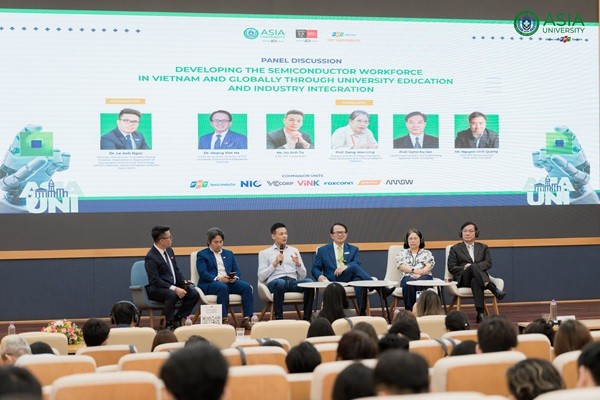
Experts affirm that the semiconductor industry is considered the "heart" of the digital economy.
Bridging the gap between training and market human resource needs
According to Professor Gene-Eu Jan, Department of Electrical Engineering, National Taipei University (Taiwan, China), the salary of semiconductor engineers is currently higher than that of professors, which shows the importance and value of the semiconductor industry to the economy.
He also emphasized that the Taiwanese government has been investing heavily in the semiconductor industry, not only in research and development but also in creating more educational and employment opportunities for the younger generation. These investments not only help enhance Taiwan’s competitiveness in the global technology market, but also provide outstanding career development opportunities for students and engineers in this field.
Prof. Deng Wen Ling, Counselor for Science and Technology, Taipei Economic and Cultural Office, also shared that Taiwan has strongly developed a science and technology ecosystem through Televon Vision 130 - a strategy to promote innovation, sustainable development and attract technology investment in science parks. Regarding research and development (R&D), the National Institute of Applied Research (NIR) plays a role as a bridge between academia and businesses, with 7 specialized research centers - including a center dedicated to the semiconductor field.
Taiwan Semiconductor Research Institute (TSRI) provides an open platform to support chip design and integration, enabling stakeholders from large enterprises to startups to participate in the high-tech value chain. In addition, Taiwan CBI and the Taiwan Rain IC Challenge have attracted many global startups, focusing on new trends such as Generative AI and heterogeneous integration.
Regarding human resource training, 13 universities in Taiwan have established semiconductor departments and implemented extensive cooperation programs between schools and businesses to train highly qualified engineers, ready for practice.

Professor Deng Wen Ling said that Taiwan is planning to build a Frontier Technology Platform to consolidate its position as a global leader in the semiconductor industry, from research, production to commercialization. This is a valuable lesson and has great reference value for Vietnam in the process of building a sustainable semiconductor ecosystem.
It can be said that the development of semiconductor technology in Taiwan (China) is a model that the Vietnamese semiconductor industry needs to learn from, while strengthening strategic cooperation to access and master core technology. Close cooperation between universities, research institutes and enterprises in developing high-quality human resources for the technology industry, especially the semiconductor field, not only helps improve the quality of training, but also opens up many better job opportunities for Vietnamese students after graduation.
Sharing about the cooperation between Vietnamese and Taiwanese (China) educational institutions, Mr. Vu Tien Thinh, Deputy Director of the National Innovation Center, affirmed that this training cooperation will be a strategic step to help Vietnam quickly shorten the gap and gradually affirm its position on the world technology map.
"Activities such as internship programs, design orders, and product manufacturing from Taiwanese (Chinese) enterprises will help students access the real working environment, understand the needs of the industry, and be ready to integrate immediately after graduation. This is the key factor to shorten the gap between training and the human resource needs of the market," said Mr. Thinh.
For Vietnamese students, Mr. Thinh also gave advice on choosing the right major to stay ahead of technology trends. Priority areas include: microchip design, microelectronics, semiconductor engineering, semiconductor materials and automation. Regarding training locations, students should study at prestigious technical schools at home and abroad, or participate in cooperation programs between schools and large technology enterprises to have the opportunity to access practical knowledge and increase competitiveness.
Source: https://daibieunhandan.vn/lien-ket-voi-nuoc-ngoai-de-phat-trien-nguon-nhan-luc-ban-dan-post410813.html


![[Photo] Prime Ministers of Vietnam and Thailand visit the Exhibition of traditional handicraft products](https://vphoto.vietnam.vn/thumb/1200x675/vietnam/resource/IMAGE/2025/5/15/6cfcd1c23b3e4a238b7fcf93c91a65dd)

![[Photo] National Assembly Chairman Tran Thanh Man meets with Thai Prime Minister Paetongtarn Shinawatra](https://vphoto.vietnam.vn/thumb/1200x675/vietnam/resource/IMAGE/2025/5/15/e71160b1572a457395f2816d84a18b45)







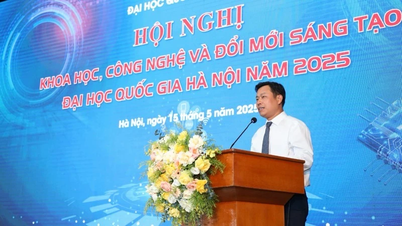

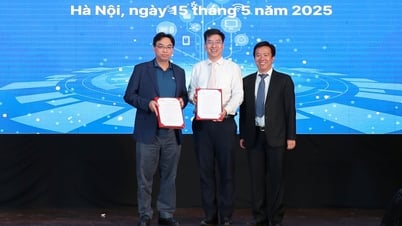
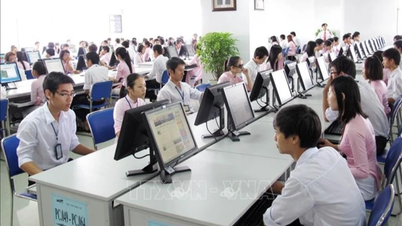











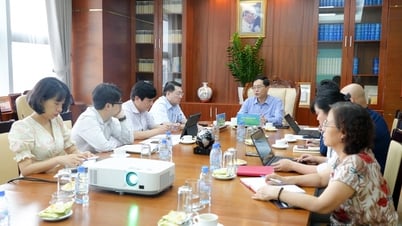














































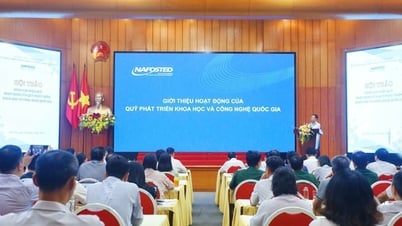

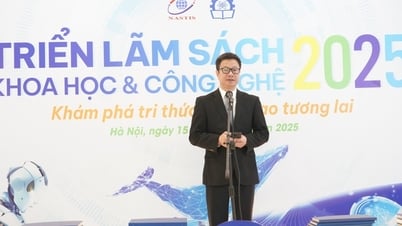






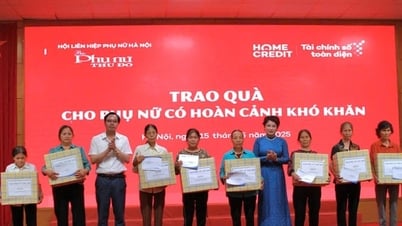










Comment (0)